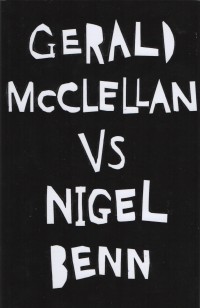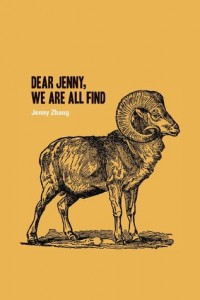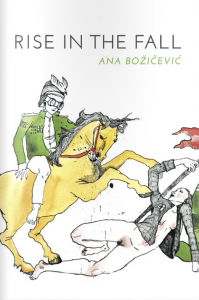 Gerald McClellan vs Nigel Benn
Gerald McClellan vs Nigel Benn
by Sam Pink
Wormblanket Press, 2013
$10.00 buy from Wormblanket Press
1. Who are these people. I picture Gerald McClellan in a ring with Nigel Benn but maybe they’re just labels on a whiskey pint, they’re on the shelf next to each other like “Hey, we made it,” and maybe they have. Shelf life for life.
2. Sam’s Chicago doesn’t require much “game” or at least if you’re pretty for a white boy it kind of seems like the junkies are all thinking like a bunch of teenage girls.
3. I felt the distinct possibility of having teenage girls want to/pretend to want to fuck me to be alluring but not in a sexual way. All those big eyes with mascara and vodka and older brothers smaller than me. Everything would ride on those brothers being smaller than me, though. They’ve got retractable batons. My little brother once had a friend named Erin that I wanted to like me because she was going to art school in France according to my mom.
4. I worked in a warehouse once. So did I. The people in Sam’s warehouse seem like chillers. I want to throw a jammer with these chillers, and then they do. Same thing about the feeling in “Nice Job”. I would have never said “Nice Job” to anyone driving a forklift. Thought about it though.
5. Limited death types/options on pursuing boxing as a future.
6. Every story has a choice. Listing choices is easy. Spending the night outside of your girlfriend’s apartment because you have no other choice, even if you think the rats are sweet, is a hard choice to make. The movements of Sam’s characters feel both arbitrary and necessary, but always made by one person alone.
7. No matter what, the homeless will always have more friends than you.
8. G’be k’n me is something I’d like to incorporate into my regular speech.
9. If my grandfather always said, “Hey, now who’s this little shithead?” I would be okay with it because my grandfather has Alzheimers. Mine are all dead.
10. Just went to the movies last night. Didn’t question why no one talked to me. Kind of want to move to Chicago. READ MORE >



 Dear Jenny, We Are All Find
Dear Jenny, We Are All Find


